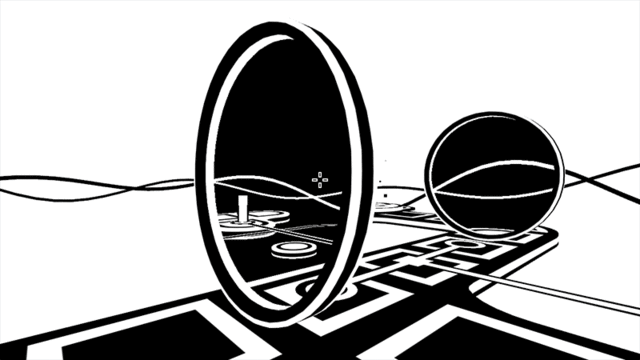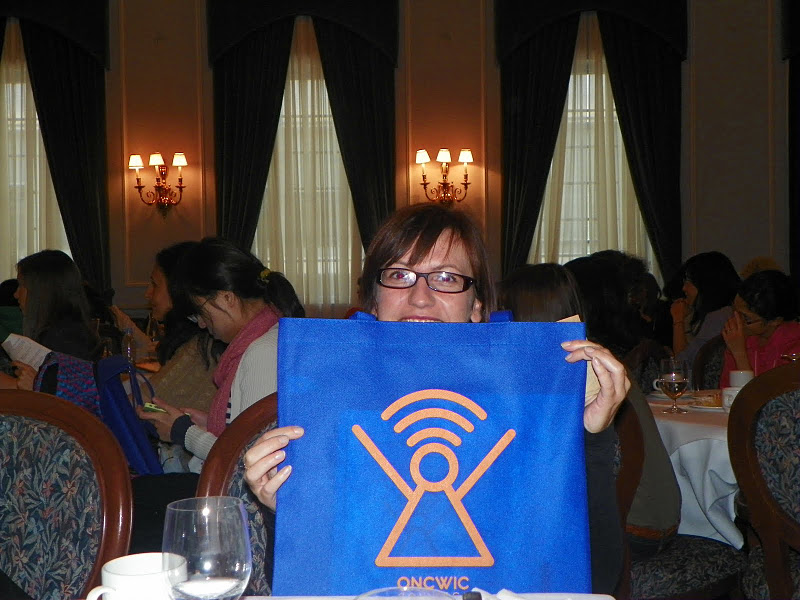Queen’s School of Computing’s Professor Nick Graham was in Toronto when COD: MW3 was released earlier this week. CBC news caught up with Nick and asked for his comments on this hugely popular FPS.
Tom Dean and Queen’s School of Computing Featured at Cascon
Cascon, the IBM CAS international conference in computer science and software engineering, is the premiere annual conference in computer science and software engineering in Canada. It’s a selective conference, with an acceptance rate of about 25% from a field of about 100 submissions.
Every year Queen’s has more than its share of accepted papers at Cascon, and this year is no exception, with 15% (3 out of 22) of accepted papers coming from Queen’s.
However, there is something special about this year – all three Queen’s papers are authored by the same faculty member and his students and colleagues – Tom Dean.
Queen’s papers at Cascon 2011 :
Spy vs. Spy: Counter-intelligence Methods for Backtracking Malicious Intrusions
Jason S. Alexander, Thomas R. Dean and Scott Knight, Queen’s University and Royal Military College
Towards a Framework for Migrating Web Applications to Web Services
Asil A. Almonaies, Manar H. Alalfi, James R. Cordy, and Thomas R.Dean, Queen’s University
Towards the Profiling of Scientific Software for Accuracy
Nicholas J. Meng, Diane Kelly and Thomas R. Dean, Queen’s University and Royal Military College
Parallax: A New Game Developed by EQUIS and HML
Some exciting news from our EQUIS and HML labs, two of whose members have joined forces in order to do something special.
A game developed by the EQUIS Lab’s Zi Ye and the HML’s Jesse Burstyn has been written up in Ars Technica.
This game was developed as a course project in last year’s edition of CISC 877. Zi and Jesse have continued work on the game, and are aiming to release it for sale.

David Skillicorn in the News
On October 21, David Skillicorn commented on security concerns over a a federal central data storage system on CBC Radio’s “Ottawa Morning” show.
Queen’s at the Ontario Celebration of Women in Computing
On October 21/22nd 36 women from the School of Computing attended the 2nd annual Ontario Celebration of Women in Computing conference, held at the University of Toronto. This event held special meaning for the Queen’s attendees as they were responsible for the highly successful inaugural event held in Kingston last year.
The conference provided an excellent program filled with talks from incredible role models from Google, RBC, RIM, OCE, COACH (Canada’s Health Informatics Association) as well as representatives from academia. Our own Amber Simpson, Kelly Lyons and Karolina Zurowska all served as excellent role modes with Amber participating as an academic role model on a panel, Kelly serving as co-chair of the conference and Karolina presenting her research. There were representatives from the sponsoring companies who were actively recruiting at the event at the “job fair”.
The Friday evening social event consisted of a talk by Cate Huston, a software engineer at Google followed by a competitive game of Computer Science Jeopardy. Attendees were then treated to a Second City comedy show — there was plenty of laughter during the weekend!
The Queen’s group consisted of 13 graduate students, 22 undergrads (many first year students), Mary McCollam and Wendy Powley. The bus trip to
and from the conference provided an opportunity for the students to get to know each other and to further discuss the issues raised at the conference. It was an excellent bonding experience and a great opportunity for undergrads and grads to connect.
The attendees would like to thank the faculty and the School of Computing who generously contributed financially to this event.
We are now looking forward to watching ONCWIC flourish and grow throughout the years!
Click here to see more photos!
Virtual World Offers Real Opportunities for Children with Cerebral Palsy
Nick Graham’s work is featured in an October 27th article entitled:
Virtual world offers real opportunities for children with cerebral palsy
“The level of excitement about this project is unlike anything I have ever experienced,” says Nick Graham, director of the Equis Lab and a professor in the School of Computing. “The kids are just so excited to get this game and try it out.”
A virtual world that allows children with cerebral palsy (CP) to socialize, exercise and engage in collaborative games from the comfort of their own homes may soon be a reality, thanks to pioneering research by Queen’s computing experts.
“The level of excitement about this project is unlike anything I have ever experienced,” says Nick Graham, director of the Equis Lab and a professor in the School of Computing. “The kids are just so excited to get this game and try it out.”
For children with CP, a lack of muscular strength often means that normal growth can lead to a loss of mobility hampering the children’s ability to socialize and exercise. Dr. Graham hopes that the virtual gaming research carried out in his lab will help address feelings of social isolation and the difficulties children with CP have getting involved in traditional physical exercise.
The technology developed by Dr. Graham’s Equis team uses adapted cycling equipment allowing participants to collaborate in virtual projects and adventures. Similarly to popular computer games like World of Warcraft, the world continues to exist in real-time even when individuals log out. Children are able to come into the world, meet with friends, set up play dates, and do activities together, all at times that suit them.
Dr. Graham’s goal is to be able to set up exercise stations in children’s homes—a development for which funding has been secured. Beyond this, he hopes to more closely examine the ways in which children socialize in the gaming world and investigate any additional health benefits the technology may provide.
“I really feel a great responsibility for us to create something that works and something that these kids can use,” says Dr. Graham. “It goes beyond trying to get the research results and publishing papers. We all have a desperate desire to create technology that works and helps.”
The other Equis lab researchers are PhD student Hamilton Hernandez, master’s student Ameer Hamza, professional programmer Zi Ye, and exchange student Quentin Bellay. The team works in collaboration with Darcy Fehlings at Holland Bloorview Kids Rehabilitation Hospital.
This research is funded by NeuroDevNet and Graphics, Animation and New Media (GRAND), and supported by equipment grants from the Natural Sciences and Engineering Research Council of Canada (NSERC).
For more information about collaborative gaming technology, visit the Equis Lab website.
Queen’s School of Computing at the Ontario Universities Fair
The Queen’s School of Computing received significant and well-deserved attention at the Ontario Universities Fair held in Toronto this past weekend. Our representatives were kept busy responding to inquiries from an incessant stream of bright and enthusiastic high-school students. We were delighted to learn that the diversity, uniqueness and depth of our programs generated considerable interest at the Fair.
Our sincere thanks are extended to the following dedicated and loyal individuals who volunteered their weekend to represent the QSC with knowledge and passion:
Wendy Powley
Ben Hall
Bob Crawford
Drew Weatherhead
Charlotte Blinston
Lizzie Lappin
As usual, we are grateful to Irene LaFleche who organized the expedition.
Thanks also to our Faculty of Arts and Science Associate Dean, Dr. Cynthia Fekken, for her encouraging words to our team at the OUF, and her continued support of the School’s mission.
Scott Grant, Software Engineer Video
Scott Grant participated in the Virtual Researcher on Call program last year by doing a video interview that can be used by teachers and students to find out what a career in software engineering could be like. That video is now available.
Mohamed Hefny featured on Queen’s Grad School Website

PhD candidate at the Queen’s University School of Computing Mohamed Hefny is already demonstrating huge potential on a number of levels, including his studies, research career and his ability to generate funding to benefit his field on the world stage.
For more information, see the School of Graduate Studies website.
Undergraduate Cognitive Science Student Anthony Brohan selected as a “Rising Stars of Research” contributor
Anthony Brohan was selected to present his research at the Rising Stars of Research undergraduate poster competition at UBC in August. Anthony was one of 105 applicants selected from a pool of over 400.
Anthony’s work is titled “Context-Sensitive Acoustic Near-Neutralization in Tongue Twisters”, and was part of a term project for COGS 200. Most of the other projects presented at the conference are undergraduate theses, so it’s really amazing that he was selected to present.
Congratulations Anthony!
